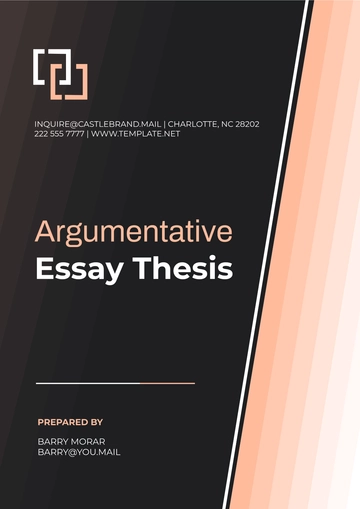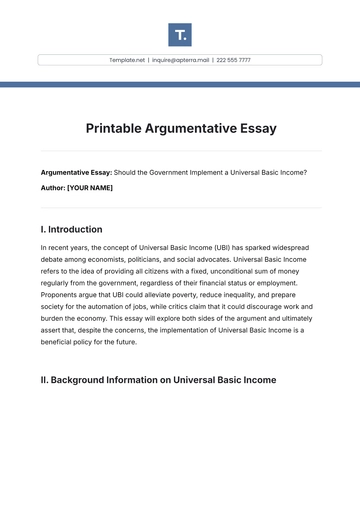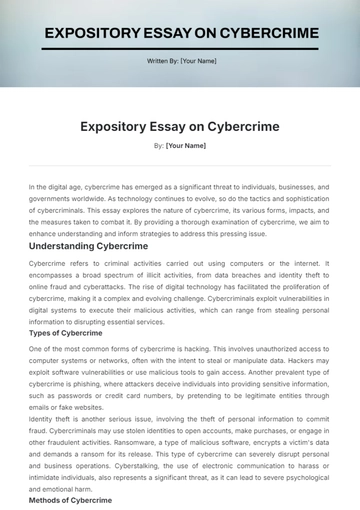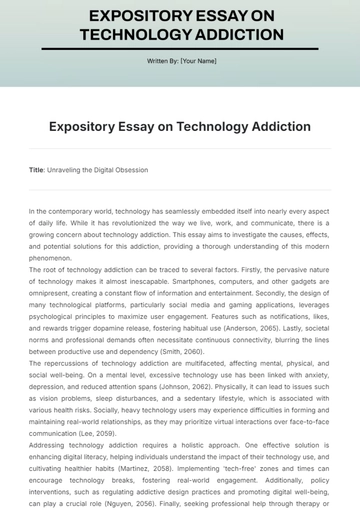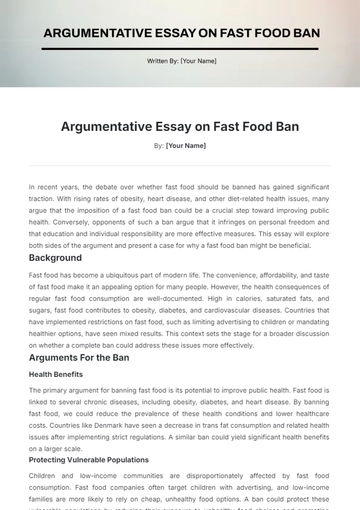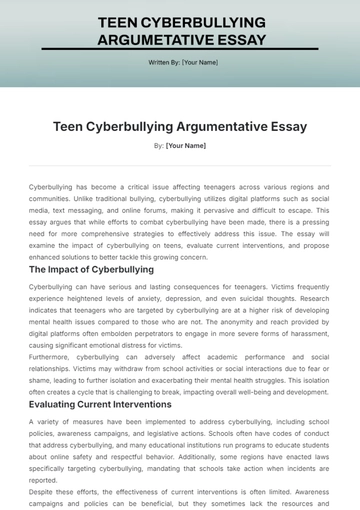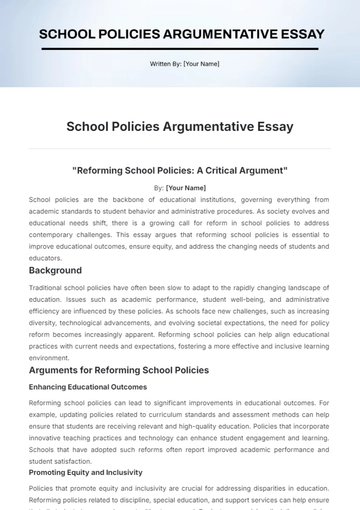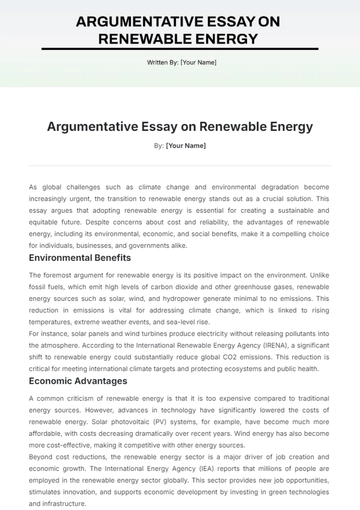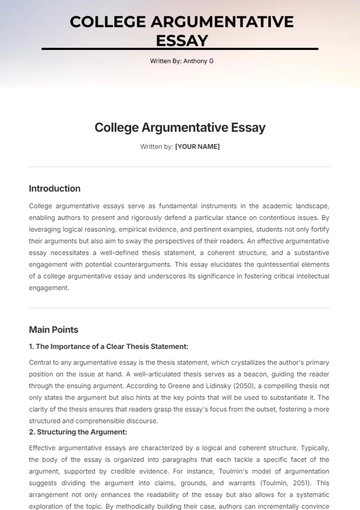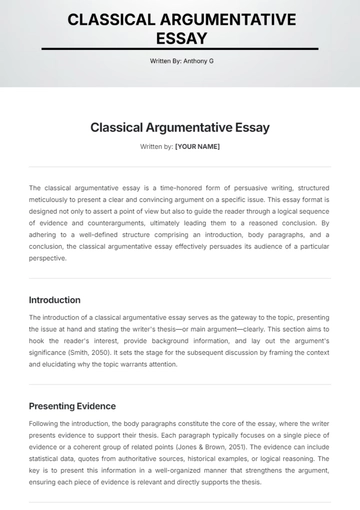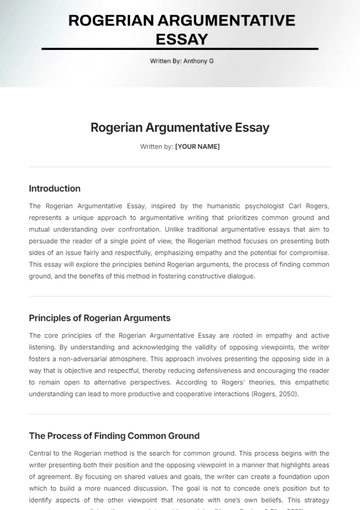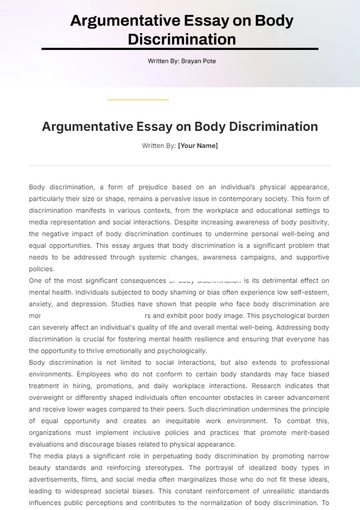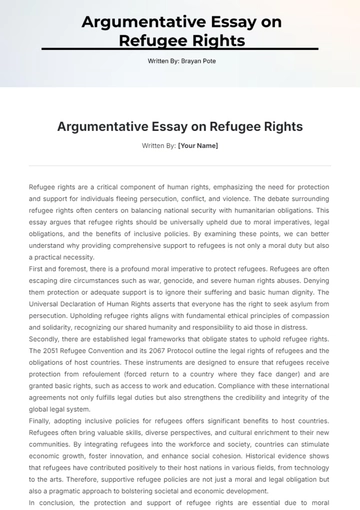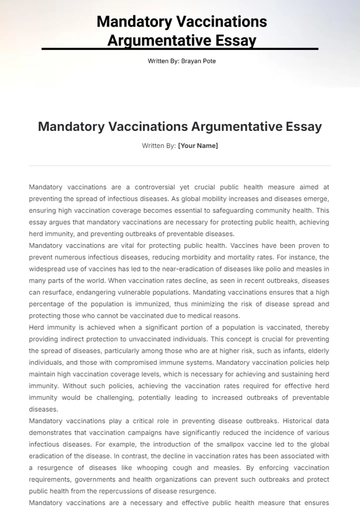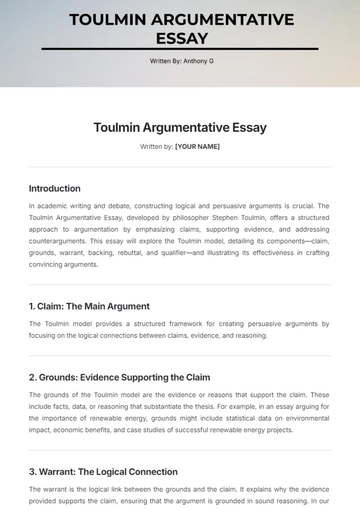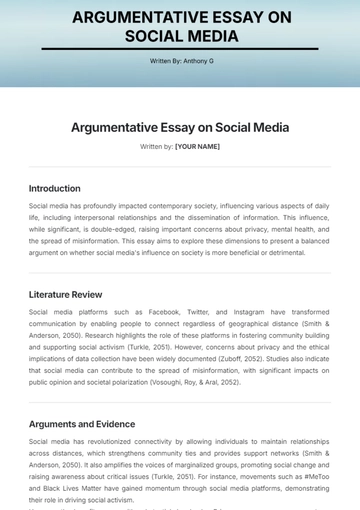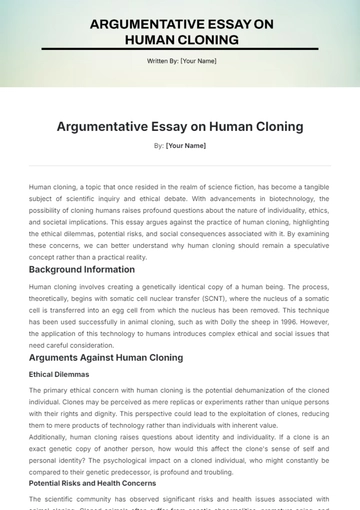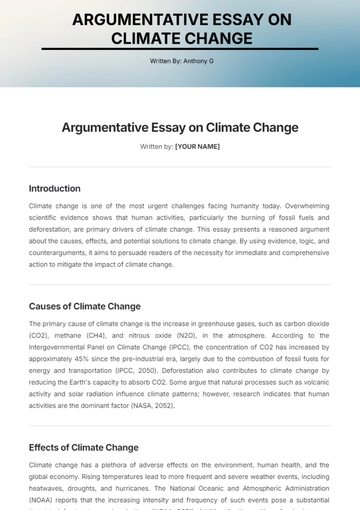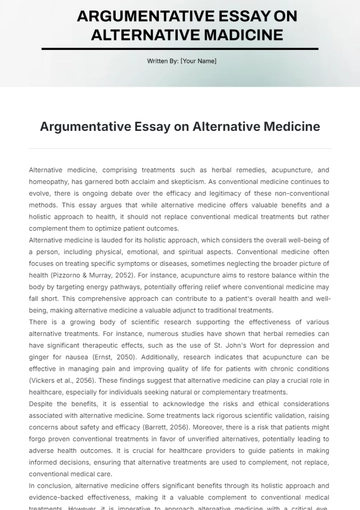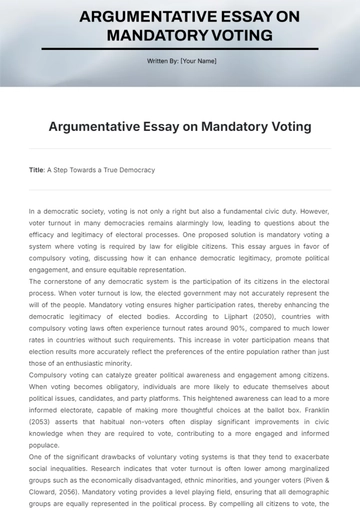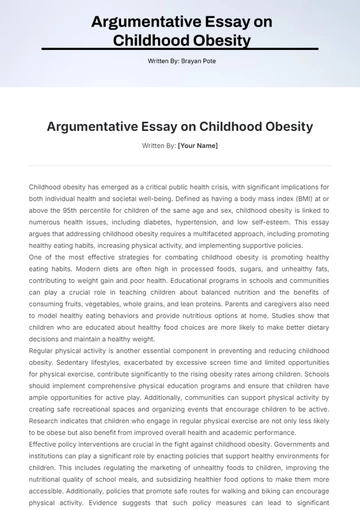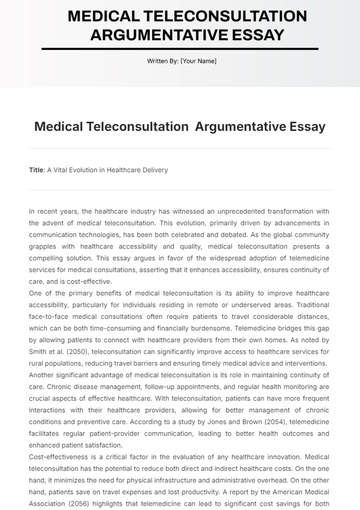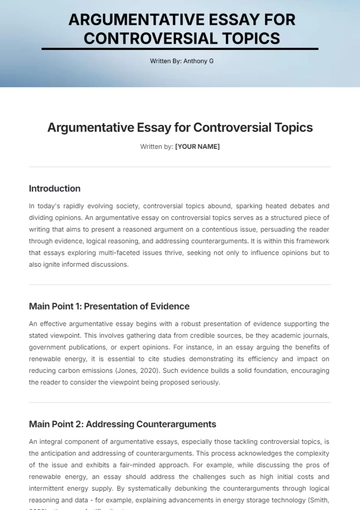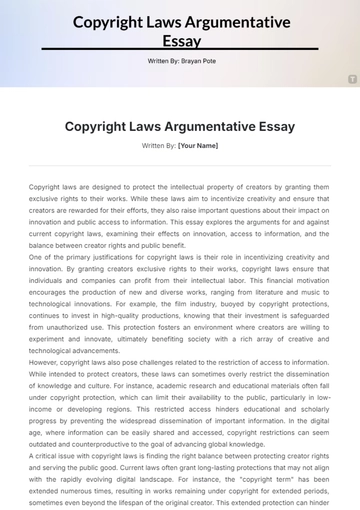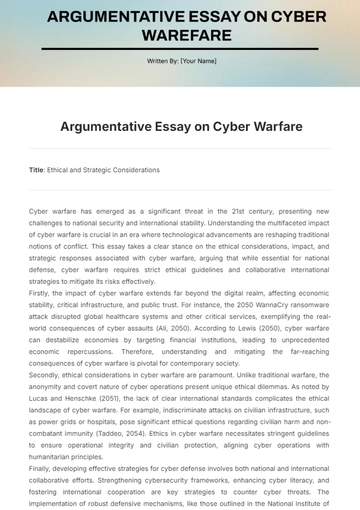Free Income Inequality Argumentative Essay
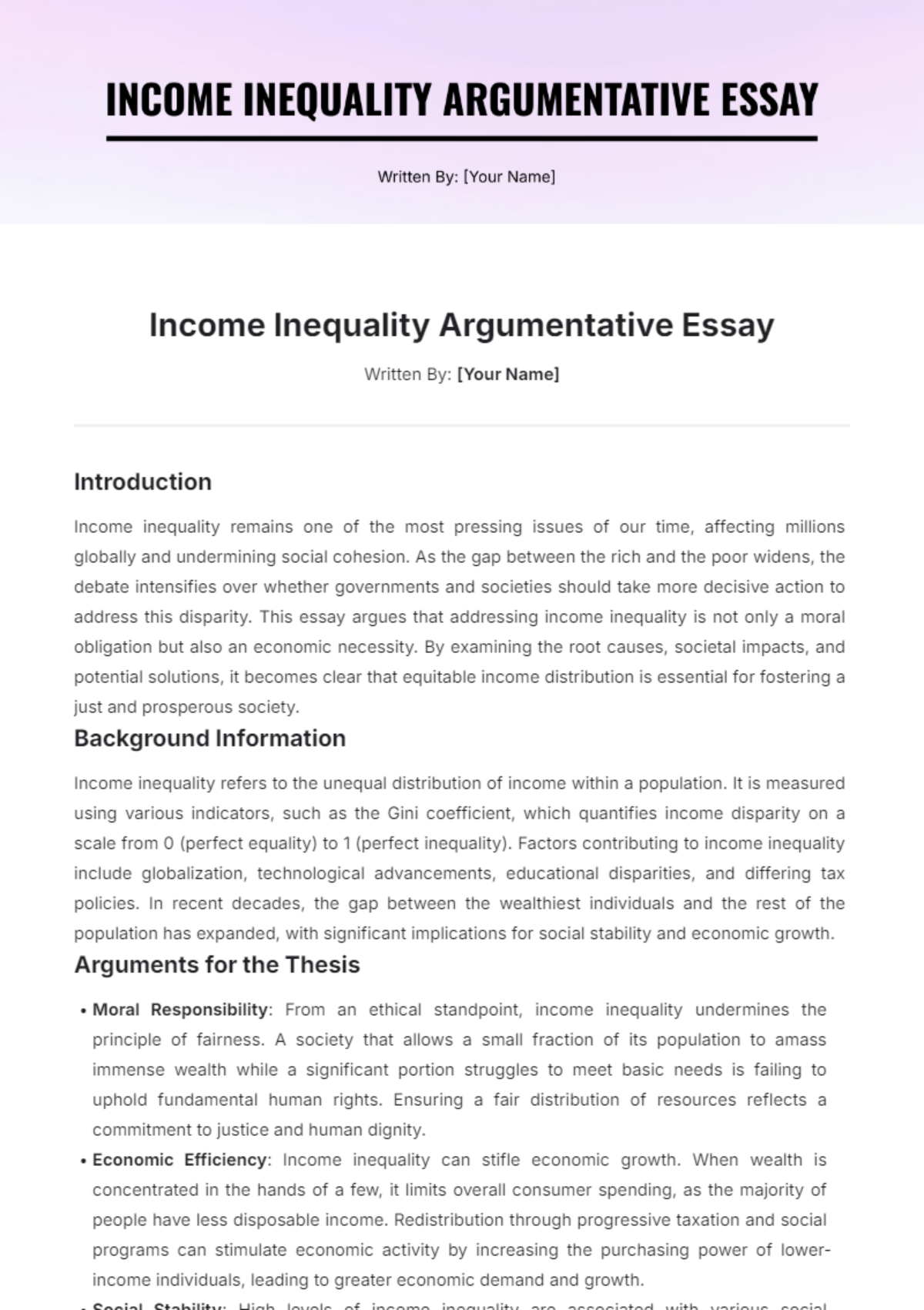
Written By: [Your Name]
Introduction
Income inequality remains one of the most pressing issues of our time, affecting millions globally and undermining social cohesion. As the gap between the rich and the poor widens, the debate intensifies over whether governments and societies should take more decisive action to address this disparity. This essay argues that addressing income inequality is not only a moral obligation but also an economic necessity. By examining the root causes, societal impacts, and potential solutions, it becomes clear that equitable income distribution is essential for fostering a just and prosperous society.
Background Information
Income inequality refers to the unequal distribution of income within a population. It is measured using various indicators, such as the Gini coefficient, which quantifies income disparity on a scale from 0 (perfect equality) to 1 (perfect inequality). Factors contributing to income inequality include globalization, technological advancements, educational disparities, and differing tax policies. In recent decades, the gap between the wealthiest individuals and the rest of the population has expanded, with significant implications for social stability and economic growth.
Arguments for the Thesis
Moral Responsibility: From an ethical standpoint, income inequality undermines the principle of fairness. A society that allows a small fraction of its population to amass immense wealth while a significant portion struggles to meet basic needs is failing to uphold fundamental human rights. Ensuring a fair distribution of resources reflects a commitment to justice and human dignity.
Economic Efficiency: Income inequality can stifle economic growth. When wealth is concentrated in the hands of a few, it limits overall consumer spending, as the majority of people have less disposable income. Redistribution through progressive taxation and social programs can stimulate economic activity by increasing the purchasing power of lower-income individuals, leading to greater economic demand and growth.
Social Stability: High levels of income inequality are associated with various social problems, including higher crime rates, lower educational attainment, and poorer health outcomes. By addressing income inequality, societies can reduce these issues, fostering a healthier, more educated, and safer environment for everyone.
Counterarguments
Incentive Structures: Critics argue that efforts to reduce income inequality may undermine incentive structures that drive innovation and productivity. They contend that high rewards for successful individuals encourage entrepreneurship and economic advancement. However, this perspective often overlooks the fact that extreme inequality can erode social cohesion and reduce overall economic productivity.
Economic Freedom: Another counterargument is that income redistribution through government intervention infringes on economic freedom. Proponents of free-market capitalism assert that individuals should have the liberty to accumulate wealth without excessive interference. Yet, this view may fail to recognize that unregulated markets can lead to significant social and economic imbalances, which can ultimately harm the functioning of the economy itself.
Conclusion
Addressing income inequality is crucial for ensuring a just and functional society. While there are valid concerns about the impact of redistribution on economic incentives and freedom, the moral and economic imperatives for reducing inequality outweigh these objections. Implementing policies that promote fair income distribution can enhance economic stability, foster social cohesion, and uphold the values of justice and equity. As societies continue to grapple with this complex issue, it is essential to prioritize measures that address income disparity and work towards a more balanced and inclusive future.
- 100% Customizable, free editor
- Access 1 Million+ Templates, photo’s & graphics
- Download or share as a template
- Click and replace photos, graphics, text, backgrounds
- Resize, crop, AI write & more
- Access advanced editor
This Income Inequality Argumentative Essay Template from Template.net is perfect for crafting a compelling essay on economic disparity. Fully editable and customizable, it allows you to tailor your arguments with ease. Editable in our Ai Editor Tool, this template streamlines the writing process, ensuring your points are clear, organized, and impactful.
